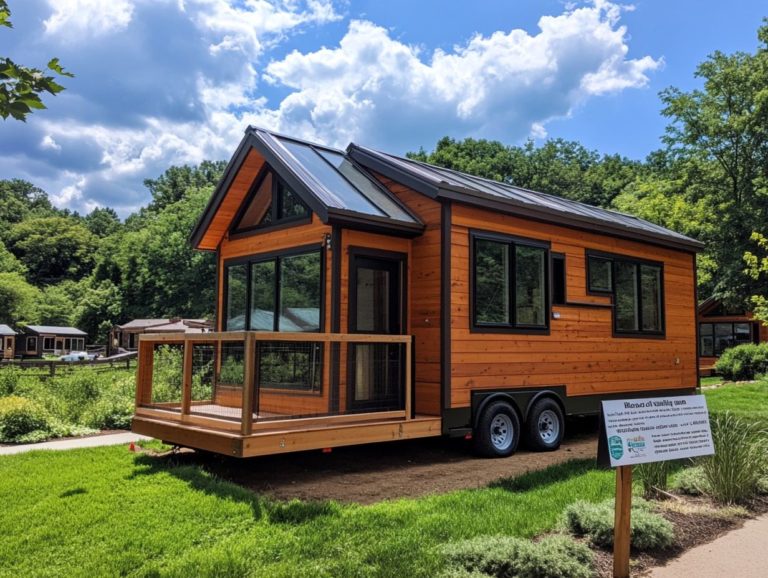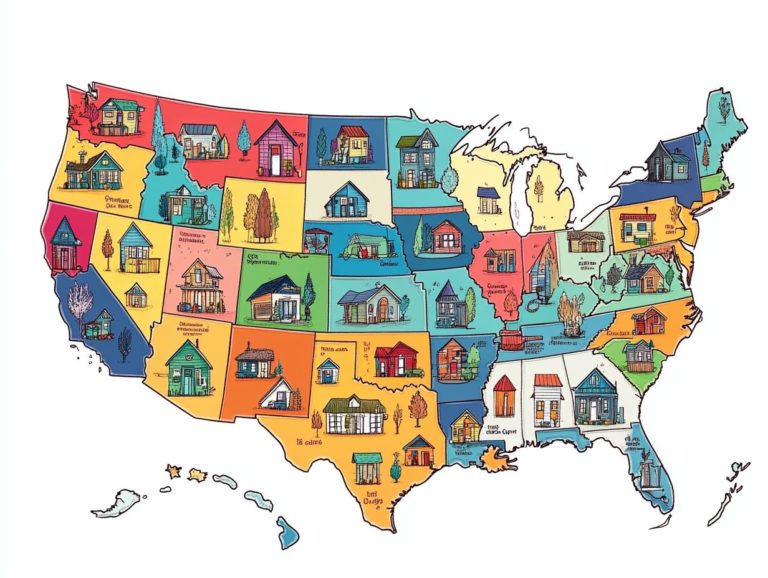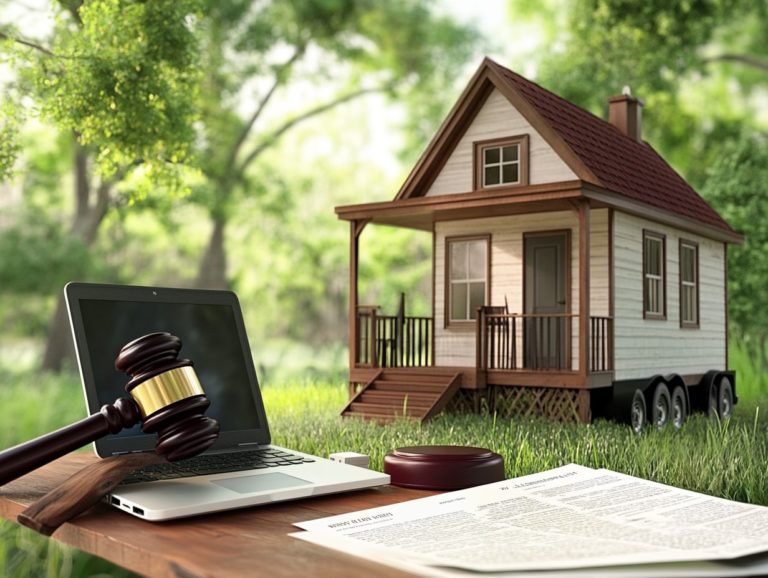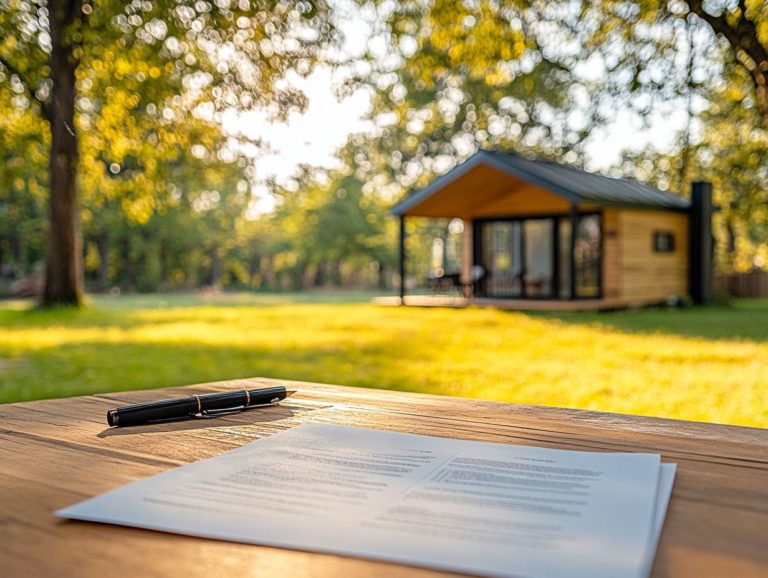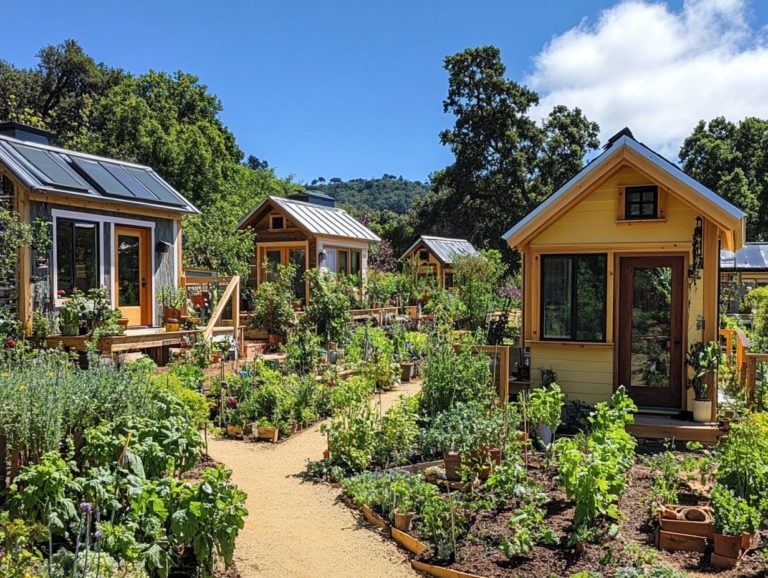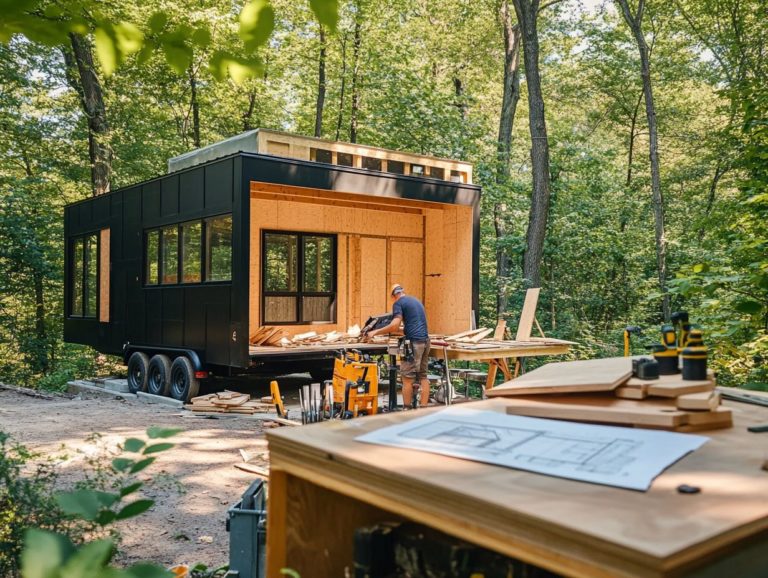Legal Risks of Building a Tiny House
Tiny houses have captured your imagination, presenting a minimalist lifestyle and the alluring opportunity to downsize.
Before you embark on this journey, understanding the laws you’ll need to follow is essential. The maze of zoning regulations, building codes, permits, and land ownership can seem overwhelming, but grasping these aspects is crucial to your success.
This article delves into the key characteristics of tiny houses, highlights potential legal risks, and offers practical steps to navigate those challenges effectively.
Get ready for valuable insights that could change your life!
Contents [hide]
- Key Takeaways:
- Understanding Tiny Houses
- Legal Considerations for Building a Tiny House
- Potential Legal Risks
- Mitigating Legal Risks
- Alternative Living Options
- Frequently Asked Questions about Tiny Homes
- What are the legal risks of building a tiny house?
- Do I need a permit to build a tiny house?
- Can I park my tiny house anywhere I want?
- What are the potential fines and penalties for building a tiny house without proper permits?
- Can I build a tiny house on someone else’s property?
- What are the potential property tax implications of having a tiny house?
Key Takeaways:
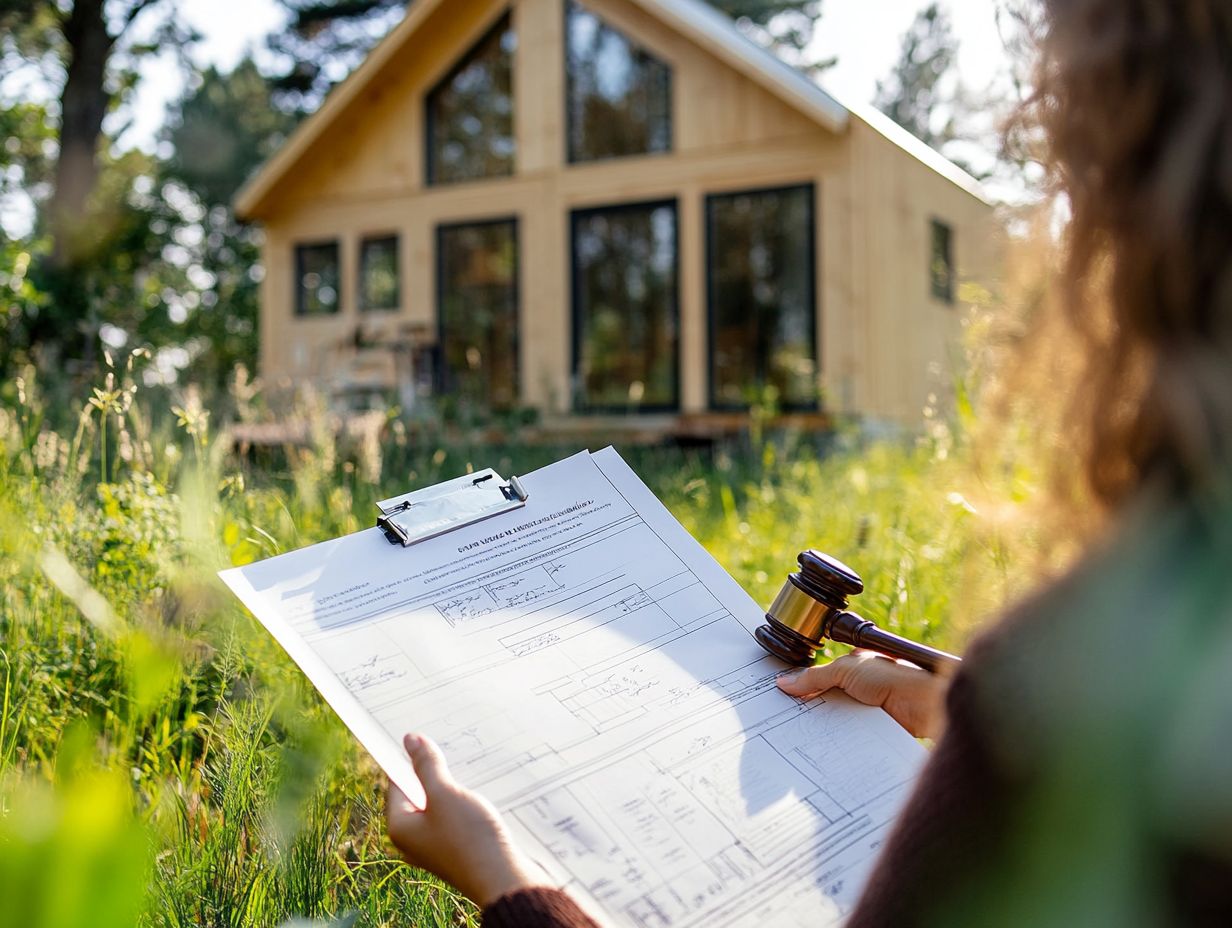
- Understand that zoning and building codes differ by location. Research them thoroughly before starting your tiny house project.
- Failure to obtain necessary permits and inspections can lead to legal consequences, including the potential demolition of your tiny house.
- Protecting yourself and your tiny house through legal measures, such as contracts and insurance, can help mitigate risks.
Understanding Tiny Houses
Understanding tiny houses means appreciating their unique features. These compact living spaces, usually under 400 square feet, focus on efficiency and sustainability.
Tiny homes often come with lower ceiling heights, enhancing both energy efficiency and affordability. As the demand for affordable housing rises, tiny houses are gaining popularity in various communities.
Organizations like the American Tiny House Association champion legal regulations and zoning laws that pave the way for tiny house communities in the United States.
Definition and Characteristics
Tiny houses are compact living spaces that redefine the concept of home, typically ranging from 100 to 400 square feet. They can serve as your primary residence or a charming secondary getaway.
These distinctive homes feature innovative layouts that maximize every square inch, incorporating multifunctional furniture and clever storage solutions that will leave you wondering how you ever lived without them.
Design elements like large windows foster an open, airy feel, while eco-friendly materials reflect a commitment to sustainability in construction.
The versatility of tiny homes allows them to adapt effortlessly to various lifestyles. They appeal to young professionals seeking affordability, retirees craving minimal maintenance, or families eager to downsize.
The allure even extends to those embracing a mobile lifestyle. Tiny houses represent not just a passing trend, but a meaningful shift toward simpler, more conscious living.
Legal Considerations for Building a Tiny House
Building a tiny house involves navigating an intricate web of legal considerations, including zoning laws and building codes that can differ dramatically from one location to another.
Zoning and Building Codes
Zoning and building codes are pivotal in determining where and how you can construct tiny houses. These regulations define land use and property boundaries that you must adhere to.
In many instances, these rules can vary dramatically depending on your geographical location and local governance, creating a complex landscape for potential tiny house dwellers.
Urban areas often impose stricter standards and limited spaces due to higher population density and infrastructure demands. Conversely, rural regions may offer more flexibility in land use, but they can sometimes lack essential services.
Zoning laws directly impact the feasibility of establishing tiny house communities. Collective living arrangements require careful navigation through permitting processes, which involve obtaining approvals from local authorities before you can build, and compliance with safety standards.
Understanding these nuanced differences is crucial for anyone considering the tiny house lifestyle, as they influence individual projects and shape the broader movement toward sustainable living.
Permits and Inspections
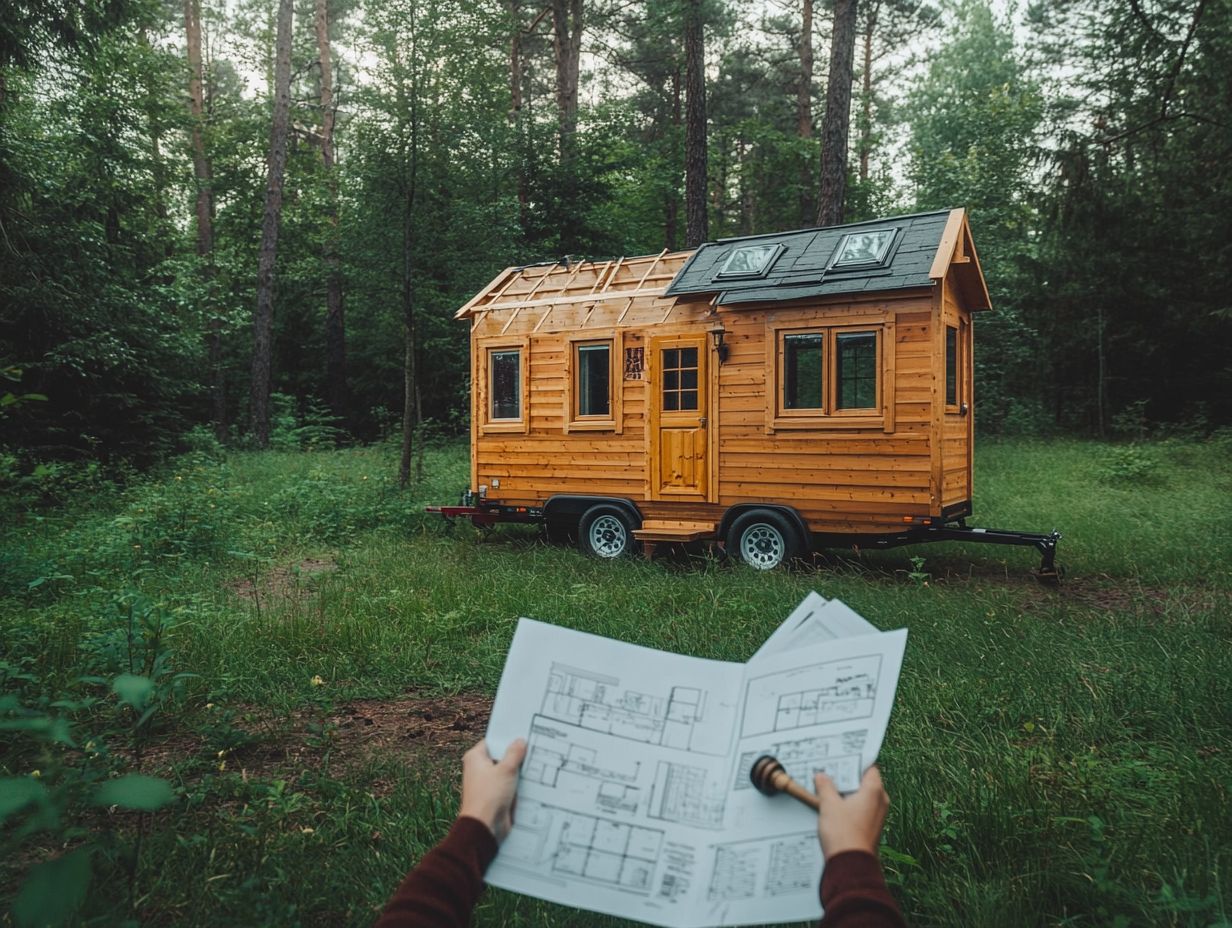
Acquiring building permits and undergoing inspections is crucial for anyone looking to build a tiny house. These steps ensure you comply with local regulations and fire safety standards.
Navigating the permitting process might seem daunting, but it s essential to align your construction with community zoning rules and safety codes. Understanding building codes is vital; this knowledge helps you avoid fines and the risk of future demolitions.
Inspections serve as important checkpoints, confirming that your work meets established standards throughout construction. Integrating fire safety regulations into your design is not just a legal requirement; it s a protective measure for both occupants and the surrounding environment.
Land Ownership and Property Taxes
Understanding land ownership and property taxes is vital for tiny house owners. These factors can significantly impact the long-term viability and legality of your tiny living experience.
Navigating land ownership can be challenging, especially if you’re passionate about tiny house living. Property tax rates vary widely, so it s important to research specific regulations and tax implications in your area.
When choosing between renting land or purchasing property, consider your financial stability. Renting may seem budget-friendly, but it often comes with restrictions. Owning land offers more autonomy but usually requires higher upfront costs.
By grasping these dynamics, you can make informed decisions that genuinely support your tiny living aspirations.
Potential Legal Risks
As a tiny house owner, be aware of potential legal risks. These can stem from not following zoning rules, disputes about community regulations, or challenges regarding property boundaries.
Careful navigation of these complexities will help ensure a smoother tiny house journey.
Possible Legal Challenges and Consequences
Legal challenges for tiny house owners can include eviction from rental properties and disputes related to local regulations. These issues can lead to significant financial consequences, including unexpected costs like legal fees and fines.
Zoning laws and building codes vary across jurisdictions, adding complexity to your situation. In urban areas, these obstacles can impact rental options and intensify competition for available spaces.
Understanding the legal landscape is essential, as shifting regulations can greatly affect your living situation and financial well-being.
Mitigating Legal Risks
Mitigating legal risks linked to tiny houses requires a proactive approach. Familiarize yourself with local regulations, seek appropriate legal protections, and consider community mediation when disputes arise.
Taking these steps will help you navigate the complexities of tiny house ownership with confidence and peace of mind.
Steps to Protect Yourself and Your Tiny House
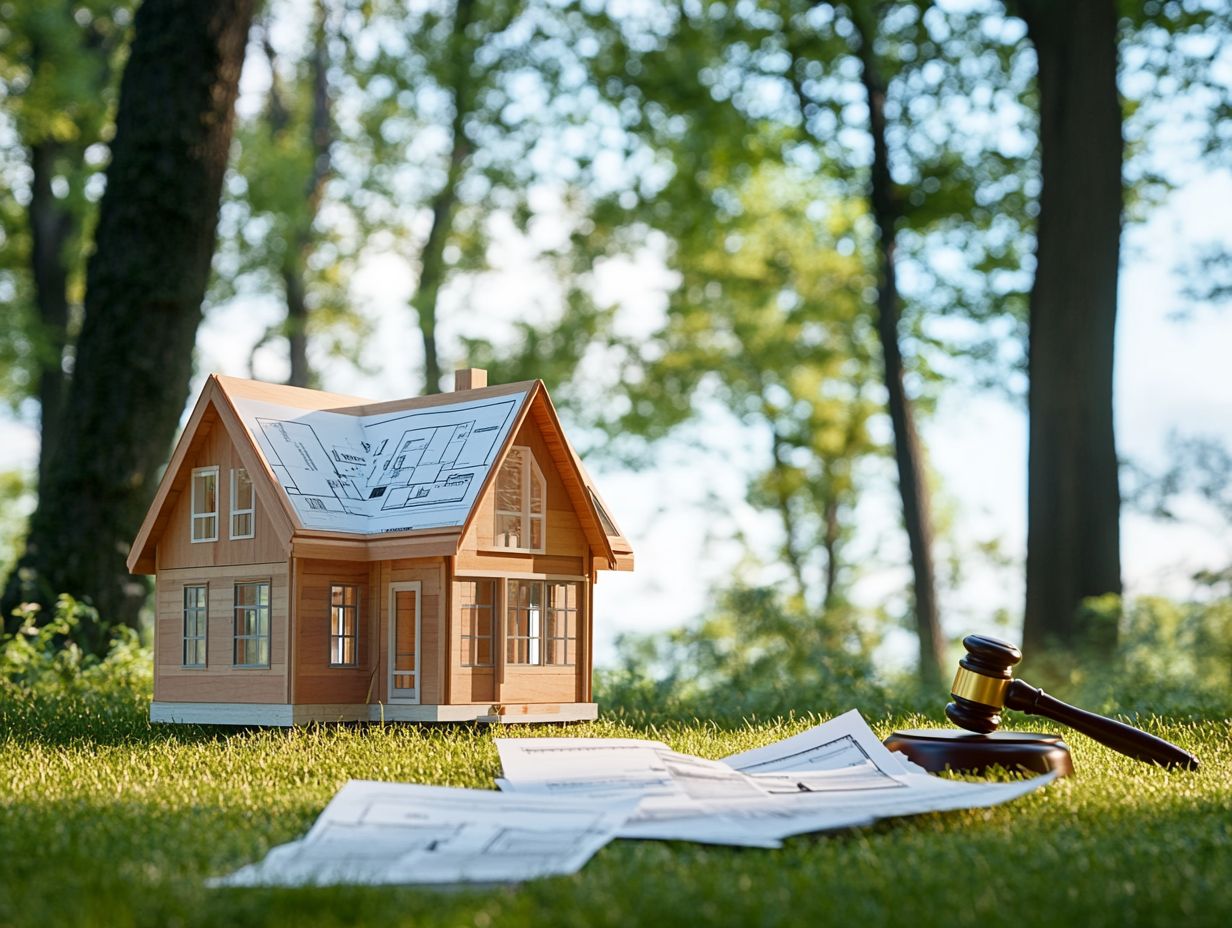
Taking proactive steps to protect yourself and your tiny house can significantly minimize the risk of legal issues. Ensuring compliance with local building rules and maintaining open communication with your neighbors is essential.
You should familiarize yourself with your legal rights and local building rules, as this knowledge is crucial in avoiding disputes. Keeping accurate documentation, such as permits and correspondence, can serve as vital evidence should any misunderstandings arise.
You can also participate in community gatherings to foster positive relationships with your neighbors, promoting a strong sense of community.
By engaging in these practical measures, you protect your own interests and contribute to the overall sustainability of the tiny house movement.
Alternative Living Options
Exploring alternative living options, like tiny houses and mobile homes, unveils a compelling trend toward affordable housing solutions that cater to various lifestyles and economic circumstances.
This movement provides flexibility and reflects a conscious choice for simplicity and sustainability in today s fast-paced world.
Exploring Other Housing Options
Looking beyond tiny houses, options such as mobile homes and co-housing arrangements reveal distinct advantages and challenges in the rental market for those seeking affordable living.
For instance, mobile homes offer flexibility and a lower initial investment, making them appealing to individuals or families keen on minimizing expenses.
However, they present challenges related to land ownership and zoning regulations, complicating long-term stability.
Conversely, co-housing encourages a sense of community and shared resources, fostering supportive environments that can significantly reduce living costs.
Yet, this arrangement often requires active participation in communal decision-making, which may not suit everyone.
As these alternatives gain traction, their unique implications could reshape the landscape of affordable housing, affecting the rental market and influencing real estate trends across various regions.
Frequently Asked Questions about Tiny Homes
What are the legal risks of building a tiny house?
The legal risks of building a tiny house include zoning laws, building code violations, property tax implications, potential fines and penalties, and possible legal disputes with neighbors or local authorities.
Do I need a permit to build a tiny house?
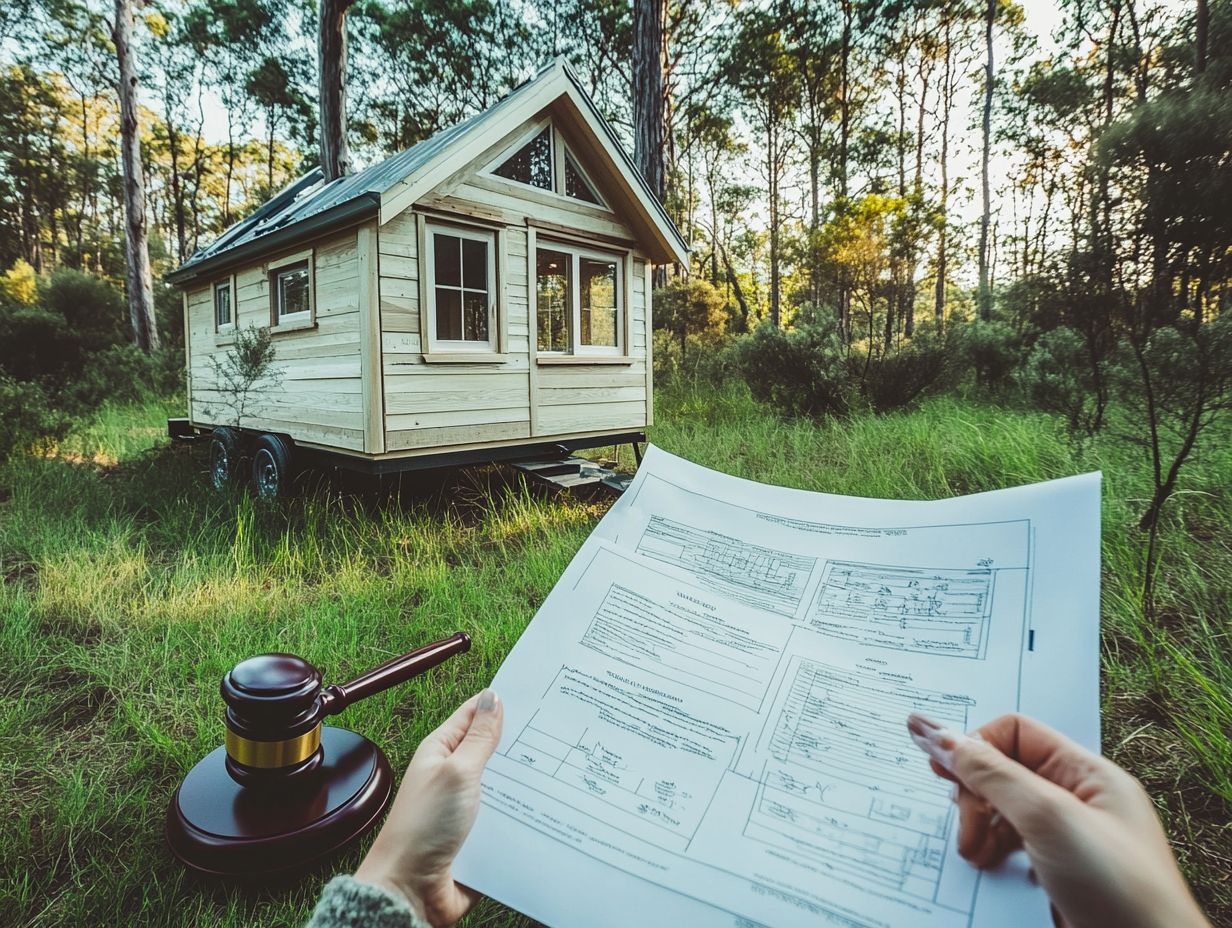
This depends on your location and the size of your tiny house. In many areas, a permit is required for any permanent structure, including tiny houses. It’s crucial to research and comply with all local regulations to avoid legal issues.
Can I park my tiny house anywhere I want?
No, you cannot park your tiny house just anywhere. Many areas have zoning laws and building codes that restrict where you can park and live in a tiny house. It’s important to research and obtain necessary permits before parking your tiny house.
What are the potential fines and penalties for building a tiny house without proper permits?
The fines and penalties for building a tiny house without proper permits can vary depending on your location and the extent of the violation. You may be required to pay fines, remove the structure, or face legal action. It’s important to comply with all regulations to avoid these consequences.
Can I build a tiny house on someone else’s property?
It is possible to build a tiny house on someone else’s property, but you will need to obtain written permission from the property owner and comply with all local regulations. Failure to do so could result in legal disputes and fines.
What are the potential property tax implications of having a tiny house?
In some areas, having a tiny house on your property may affect your property tax. It’s important to research and understand your local tax laws to avoid any unexpected tax burdens.

